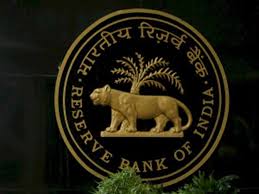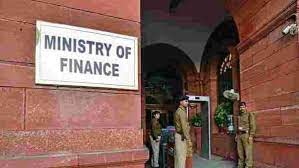
The Reserve Bank of India (RBI) notified the change in norms on eligibility, empanelment, the appointment of Statutory Branch Auditors in Public Sector Banks from years 2020-21 onwards.
The RBI notified Rotation Policy instead of Cooling Period for Bank Branch Audit for CAs. In other words, the concept of compulsory rest for two years for audit firms located in the specified centres, after completion of four years of continuous branch audit, followed till Financial Year 2019-20 has been done away with.
Instead, the branch auditors across all the centres of the country, on completion of four years of continuous branch audit, will be subjected to the policy of rotation i.e. they may be considered for appointment as SBAs of any other PSB.
However, the audit firms will not be eligible to be re-appointed as SBAs, in the same bank where they completed their audit assignment prior to rest/rotation, at least for one cycle of four years.
The RBI further notified the change on norms for selection of branches of Public Sector Banks (PSBs) for Statutory Audit.
Firstly, statutory branch audit of PSBs should be carried out so as to cover 90% of all funded and 90% of all non-funded credit exposures of a bank.
The selection of branches for statutory audit shall include a representative cross section of rural/semi-urban/urban and metropolitan branches, predominantly including branches which are not subjected to concurrent audit.
CPUs/LPUs/and other centralised hubs, by whatever nomenclature called, would be included for branch audit every year.
The selection of branches shall be finalised by each PSB with the consent of their Statutory Central Auditor/s. Secondly, in respect of those branches, which are subject to concurrent audit by chartered accountants and not selected for branch audit, LFARs and other certifications done by concurrent auditors will be submitted to the Managing Director & CEO of the bank.
The banks in turn will consolidate/compile all such LFARs and other certifications submitted by the Concurrent Auditors and submit to Statutory Central Auditor/s as an internal document of the bank.
The RBI notified the change in the procedure for appointment of Statutory Branch Auditors.
Firstly, the list of eligible auditors/audit firms will be prepared by the Institute of Chartered Accountants of India (ICAI) as per the norms prescribed by RBI.
Secondly, the list will be subjected to scrutiny by RBI for identifying the continuing and rested firms and excluding audit firms who have been denied audit.
Thirdly, RBI will, thereafter, forward the final list of all eligible auditors/audit firms to PSBs for selection of the required number of branch auditors/audit firms.
Banks will be required to clearly advise the selected audit firms that each audit firm can take up audit assignments (branch audit) in one PSB only. The audit firm should give its consent in writing for consideration of appointment in the bank concerned for the particular year and the subsequent continuing years.
Fourthly, the consent given by an audit firm is irrevocable and no request from audit firms for changing the bank, after giving its consent will be entertained.
Fifthly, after the selection of branch auditors, PSBs will be required to recommend the names of both continuing and selected branch auditors to RBI for seeking its prior approval before their actual appointment, as per statutory requirement.
The RBI while elaboration on the change in general guidelines applicable to appointment of Statutory Branch Auditors stated that SBAs will have a maximum tenure of four years in a particular bank.
The appointment of SBAs will be made on an annual basis, subject to their fulfilling the eligibility norms prescribed by RBI from time to time, and also subject to their suitability.
“While allotting branches, banks are required to select auditors/audit firms which are in close proximity to their offices/branches. Banks are also required to have a suitable mix of various categories of auditors / audit firms while selecting the branch auditors keeping in view the size of the branches to be audited.
Banks are advised to allot branches, to the extent possible, to the audit firms taking into consideration their category and audit experience in such a way that specialised and larger branches are audited by bigger/experienced audit firms,” the RBI said.
The audit firms retiring as Statutory Central Auditors from a PSB shall not be eligible to be appointed as SBAs of the same PSB during the prescribed cooling period for SCAs from that particular PSB.
The RBI notified change in the eligibility norms for the empanelment of audit firms to be appointed as Statutory Branch Auditors in PSBs.
Read the original RBI Notification: Norms on eligibility, empanelment and appointment of Statutory Branch Auditors in Public Sector Banks from the year 2020-21 and onwards




